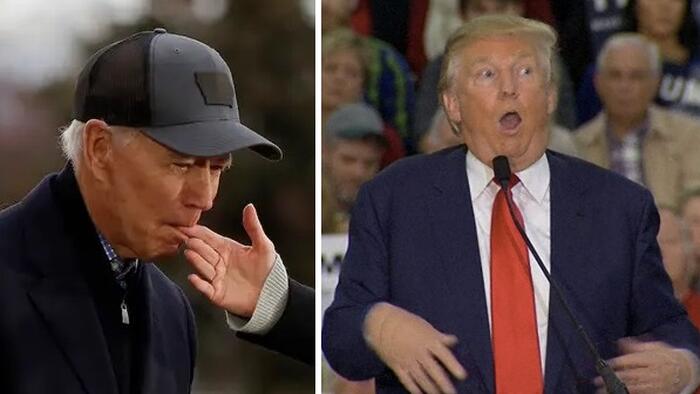The use of language surrounding disability has become a contentious issue, particularly in the context of political rhetoric, as illustrated by recent remarks from Donald Trump referring to Joe Biden as “retarded.” While politically correct liberals may decry such language as offensive and derogatory, many people casually use the term to express disdain towards an opponent without intending to be taken literally. This cultural divide is exemplified in a recent article from The Atlantic, where Trump’s comments have prompted both laughter and outrage.
In June, following a debate performance that would ultimately lead to Biden pausing his reelection campaign, Trump reportedly shocked his team aboard his campaign plane with his new moniker for Biden. He declared, “The guy’s a retard. He’s retarded. I think that’s what I’ll start calling him,” and suggested the name “Retarded Joe Biden.” Such statements indicate that Trump continues to employ provocative language as a strategy in his political arsenal, seemingly without fear of political correctness.
The comedic aspect of Trump’s derogatory language lies not only in the absurdity of his reasoning but also in the media’s reaction to it. The article in The Atlantic captures the tonal shift—what might be a serious indictment of Trump’s character is instead rendered humorous through the sheer ridiculousness of the nickname. Observers have highlighted how this type of language could alienate some voters, yet Trump’s supporters may find these bold declarations endearing or relatable.
Interestingly, the phrase “called a retard” draws attention to how the political landscape is increasingly shaped by how characters are branded rather than the actual policies they propose. The focus often drifts toward sensational headlines rather than substantive discussion. This branding war plays into the broader theme of tribalism in politics, where loyalty to a figure can supersede any rational discourse. While some may find Trump’s comments appalling, others see them as a rallying cry, reinforcing their political alignment.
Trump’s controversial take is emblematic of a larger trend in modern political discourse, where shock value and outrageous comments seem to resonate with many voters. By targeting Biden in such an overtly dismissive manner, Trump taps into a familiar playbook that emphasizes bravado and bluntness over decorum. This creates a polarization in public response, where some view it as an authentic expression of discontent towards the political elite, while others perceive it as a decline in political civility.
In conclusion, the gendering of language and its implications in politics is a complex issue, evident in Trump’s usage of a term that many find offensive. The reactions to his comments illustrate the divide in contemporary American society regarding acceptable discourse and the role of rhetoric in shaping public opinion. Whether seen as a reflection of his crassness or a clever political maneuver, Trump’s nickname for Biden underscores the evolving nature of political battles where words often hold more power than actions themselves.

